
The True Chinese Threat: Not Bombs, Roads
“The project was born in 2013 in Kazakhstan.
Xi Jinping, China’s president, who was on a state visit to Astana, gave a lecture in which he proposed to create a “Silk Road Economic Belt,” in the spirit of the old trade route that crossed the Eurasian supercontinent 20 centuries ago.
To an audience of students who looked only mildly interested, Xi promised “win-win” outcomes in trade operations based on “mutual trust.” He promised that China would never intervene in the internal affairs of the participating countries nor seek leadership in regional affairs.
Fast forward six years.
Today, the “One Belt, One Road” (Yidai, Yilu) project goes under the more investor-friendly name of the Belt and Road Initiative (BRI) and has 124 countries and 29 international organizations participating. The latest to sign preliminary agreements include G-7 member, Italy, and EU core member state Luxembourg.
Thousands of infrastructure projects are underway within the BRI framework, building on existing policies such as the “16+1 cooperation initiative” (between China and 16 central and eastern European countries) and Beijing’s earlier Zouchuqu (“Going Out”) policy, which initiated overseas investments by Chinese companies.”
So opens the recent evaluation of the now robust Chinese ‘Belt and Road Initiative’ by French outlet RadioFranceInternational.
But while China’s massed building of Eurasian and African intercontinental infrastructure is far from an overt threat to the US; it is explicitly designed to assert Chinese dominance over global logistics and trade. A dominance currently channeled of course by the US.
Using Roads to Defeat Ships
It’s hardly new information for most that the United States has been the dominant entity on the planet since the fall of the Soviet Union. A global hegemon since the 1990s ushered in the modern age of geopolitics, the sheer size of the US economy and the relative strength of the military forces operating to ensure that economy’s interests has ensured the helm of world leadership remains in Washington DC.
But much less widely (and properly) understood is that the economic and military domination of the United States is predicated on one facet of its presence far more than any other: the U.S. Navy.
More specifically maintenance and oversight of the entire globe’s lanes of maritime trade – far and away still the means most importing and exporting is done between non-neighbors – has fallen entirely on the shoulders of the US military. Since the US economy is so massive, and thus massively reliant on unhindered trade, the role has become just as important for the domestic economy as for international geopolitics.
But now, China is on the rise.
Much in the way Sun Tzu varies from Clausewitz, matching US power across the globe for the Chinese has always been a matter of shrewd maneuvers. And maneuver they do whether it be using financial pressure to annex Sri Lankan ports or the unorthodox yet genius construction of artificial islands to secure the South China Sea against the might of the US Navy; something they can’t hope to do with ships.
But the ‘Belt and Road Initiative’ is much more than that.
Initially, the “new silk road” concept may have been no more than a guideline, but today it is well embedded in China’s official politics. Formally, it is run by the National Development and Reform Commission which is the administrative successor to the notorious State Planning Commission that was responsible for hammering out China’s brutal economic Five-Year Plans.
Plain and simple: the BRI is a massive Chinese project to circumvent the modern maritime domination of the United States. Should the two major powers ever come to blows, China can assume a constriction of trade as the US implements what are now global blockades of access. More immediately pragmatic (and peaceful) is the establishment of a land-based web of trade routes stemming from China across the hemisphere. This establishes China across the world not only physically, but also financially as countries often become hopelessly indebted to the Chines regime as per Sri Lanka.
Clausewitz would likely have advised China to start a massive naval buildup to match US power in the Pacific – like Japan tried in the 1930s/40s.
Sun Tzu however? He’d likely just say, ‘go around it.’ And that is exactly what China is doing.
It would take a reckless investment even to hope to match US maritime domination. China would require a naval expansion replete with dozens of carriers and hundreds of combat vessels.
China knows this. So instead they’re avoiding that frontier – where we are strongest – altogether. Instead of overcoming the US with warships they will outmaneuver the US with their roads in a brilliantly ‘benign’ bid for hegemony.


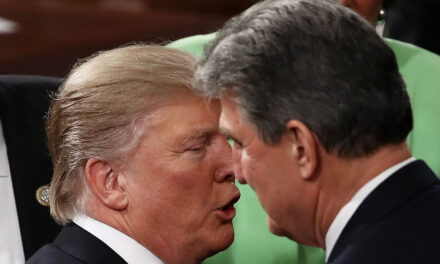
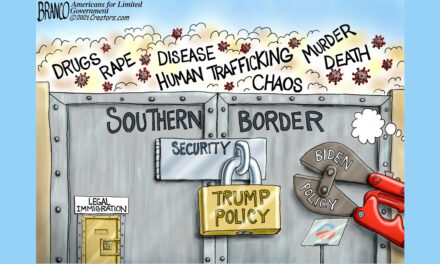
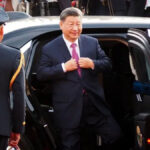















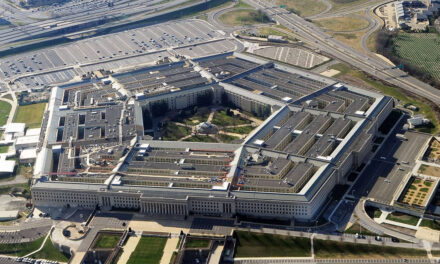




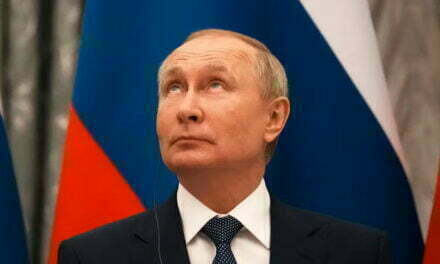
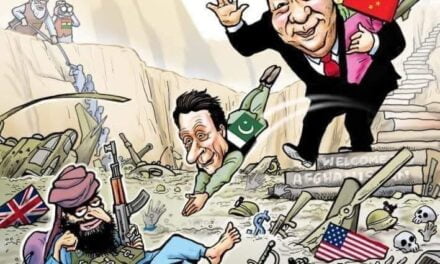

I wonder.
China is the foremost communist power. There are many American politicians who openly admire communism and wish for the creation of an American communist state.
Human nature is such that the insincere will typically accuse the sincere of doing exactly what they do themselves – e.g. “collude.”
Meanwhile the US Navy is falling apart. Bill Clinton began that process, it was somewhat arrested under George W. Bush bit the real landslide was caused by Obama. It has yet to be fixed.
Is it possible there are certain politicians here who are actively seeking to overthrow the US power in favor of Red China?